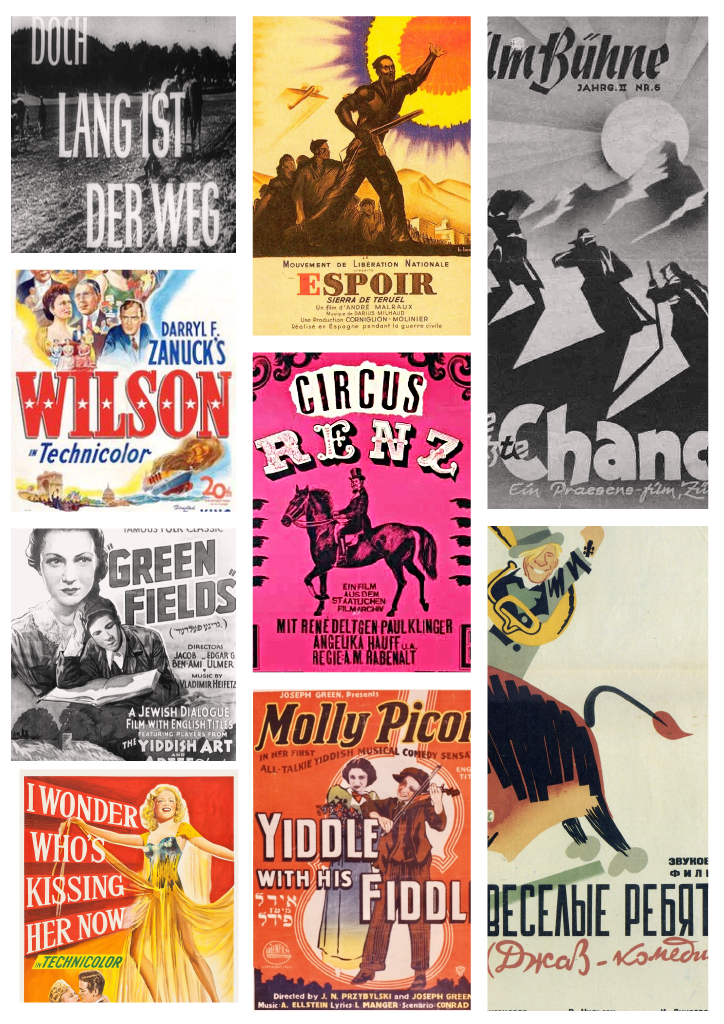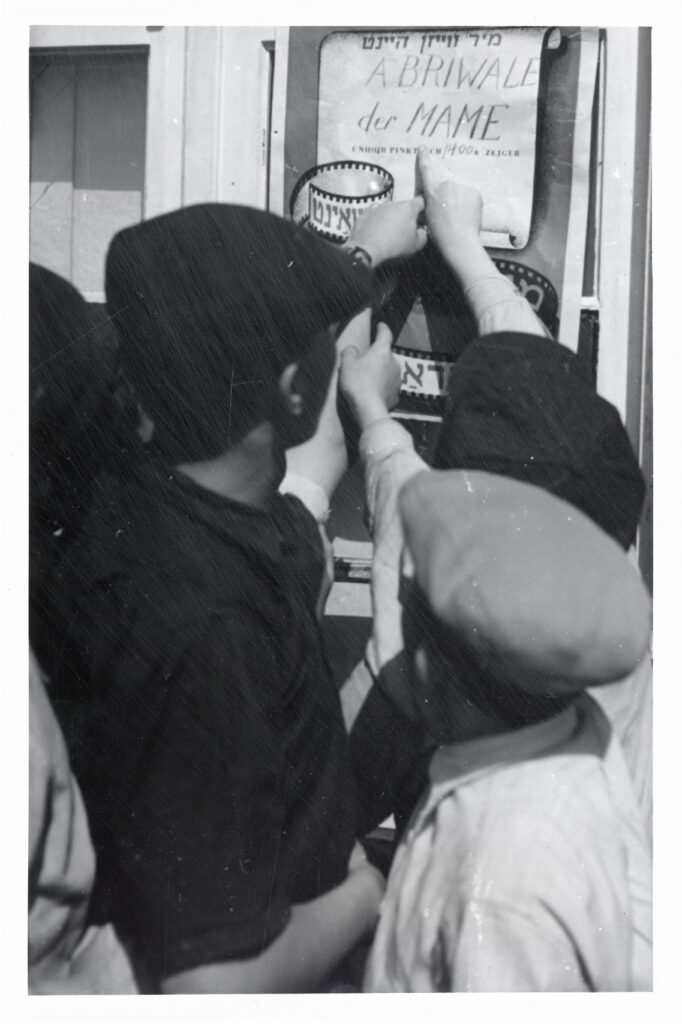
Simone Gigliotti
In the wake of the Holocaust, the Joint Distribution Committee (JDC), a Jewish humanitarian organisation headquartered in the United States, mounted a huge film screening programme for Jewish Displaced Persons (DPs) in DP camps and communities across postwar Germany. Running from August 1945 to late 1949 and out of its Munich headquarters at Siebertstrasse 3, the JDC coordinated with staff in its Paris and New York offices, the US Army in Frankfurt, and Jewish leaders in DP camps to deliver and organise film screenings. This film-as-humanitarian relief effort began in the US Zone of occupied Germany, and eventually expanded, though on a smaller scale, into the British and French Zones of Germany, and Austria and Italy.
Little has been known about this film initiative until now. Archival records from the JDC Archives, the Center for Jewish History, and Yad Vashem, have enabled the reconstruction of this enterprising relief initiative. Film screenings were a massive hit with Jewish DPs, young and old. An unlikely mix of Yiddish classics (Yiddle with his Fiddle, Two Sisters, A Letter to Mama, Green Fields), Hollywood films (Lassie, Wilson, Sullivan’s Travels), postwar European and Yiddish films (The Last Chance, Long is the Road), and Nazi-themed documentaries (The Nuremberg Trials) captured their attention. Such was its popularity that just a year after the screening programme started, Herbert Katzki, a JDC official in Arolsen, remarked that “these films are being requested all over the American and British Zones and Berlin!” Film curation was also tailored to the biographies of DPs, such as in Ebelsberg and Bindermichl near Linz where screenings of the Russian films The Salesman for the Sake of Love and Jolly Fellows took place. These films are indicative of the vast number included in the JDC’s film screening programme which was not neutral in its intent. The films screened reflected JDC and Jewish officials’ discussions over the desired migration locations of Jewish DPs (Palestine or the United States).
Although the JDC wanted to become a major supplier of film screenings to nearby countries, it never really achieved that ambition. The establishment of the State of Israel in May 1948 and increasing emigration to that country and elsewhere dovetailed with persistent operational challenges, including pressure on the JDC’s Munich office to provide reliable vehicles, a mobile film projection service, and competent staff to set up the screenings. Additional problems included in-transit damage to film prints and compliance with transnational bureaucracies and film distributors. Despite these challenges, the JDC’s film relief programme was a success and an important humanising affirmation: it demonstrated an unwavering faith in films as a tonic and aspiration for Jewish DPs. Their incessant demand for Yiddish, European and Hollywood cinema allowed them to transcend the label of “DP,” and in doing so, they became borderless cultural citizens of the world.

For a fuller investigation of the JDC’s film as relief programme, see Chapter 5 of Simone Gigliotti, Restless Archive: The Holocaust and the Cinema of the Displaced (digital and open access).
Simone Gigliotti is Reader in Holocaust Studies at Royal Holloway, University of London, UK. Her books, scholarly articles, and chapters address the spatialities of the Holocaust, transport-induced displacement, cultural geography, and Jewish refugee diasporas.
Die Ausstellung „München Displaced. Der Rest der Geretteten“ ist eine Bestandsaufnahme zur Münchner Nachkriegsgeschichte. Viele Detailinformationen, Fotos und Erinnerungsstücke fehlen noch. Inzwischen haben Besucherinnen, Nachfahren von Münchner DPs und andere Interessierte ihre Erinnerungen mit uns geteilt.
Weitere Updates:
- Update München Displaced // Der DP-Künstler Pinchas Schuldenrein
- Update München Displaced // Elias Stern
- Update München Displaced // Ernest Landau
- Update München Displaced // DP Camp Neu-Freimann
- Update München Displaced // Hebräisches Gymnasium
- Update München Displaced // Maria Leipelt und die Siebertstr. 3
- Update München Displaced // Leon Garnczarski
- Update München Displaced // Jüdisches Krankenhaus
- Update Munich Displaced // A Munich Displaced Person: Dr. Leon Wasser
